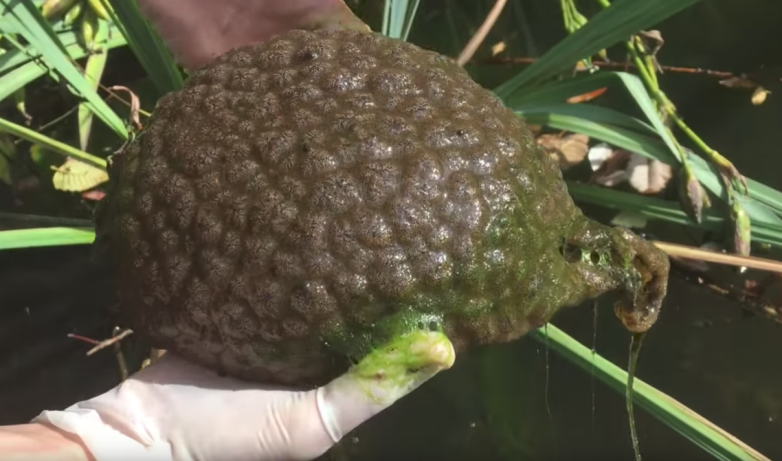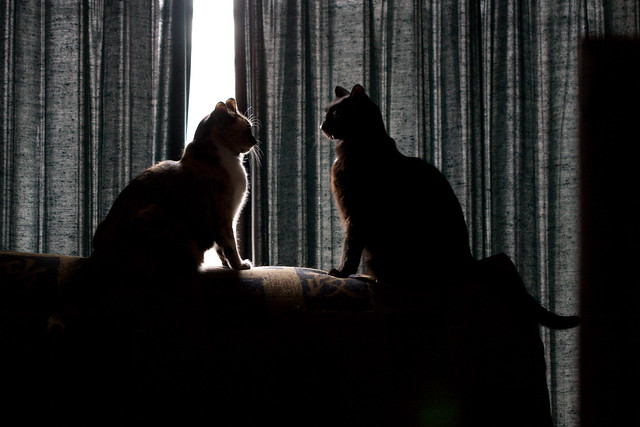Welcome to Word Buzz Wednesday, your go-to place for the most interesting words of the week. The latest: not to be confused with a horcrux, a delicious untranslatable, scared man in the metaphorical castle.
hapax
“The Satyricon contains a number of hapaxes, including ‘bacalusias’ (possibly ‘sweetmeat’ or ‘lullabies’) and ‘baccibalum’ (‘attractive woman’).”
Maya Nandakumar, “How Do You Decode a Hapax? (Also, What’s a Hapax?),” Atlas Obscura, September 7, 2017
A hapax legomenon, says Atlas Obscura, is “a word that occurs only once in a text, an author’s oeuvre, or a language’s entire written record.” Honorificabilitudinitatibus, being able to achieve honors, is one of Shakespeare’s most famous hapaxes. According to the Online Etymology Dictionary, hapax legomenon translates from Greek as “once said,” where hapax means “once only” and legomenon is a form of legein, “to say.”
sobremesa
“When you do this at home, it’s wonderful. When you do this at a restaurant, at least an American restaurant, you may get dirty looks from your server.”
Robin Shreeves, “8 foreign food words English doesn’t have,” Mother Nature Network, September 7, 2017
Sobremesa translates from Spanish as “over the table,” says Mother Nature Network, and means to stay at the table chatting long after the meal is done. Other foodie untranslatables include the Telugu engili, meaning food that has been bitten into; the Norwegian uteplis, enjoying a drink in the subshine; and the Georgian shemomechama, continuing to eat when already full.
wanchan
“The lead schoolgirl experiences ‘Wanchan Wandoki’ when her friends change her profile in a way that prompts her boyfriend to call her.”
Oona McGee, “Learn Japanese schoolgirl vocabulary with new video from Line,” SoraNews24, September 10, 2017
Wanchan is a transliteration of the English “one chance,” says SoraNews24. Other Japanese schoolgirl slang includes amore, “I love you,” and NHK, an acronym which comes from ni no ude, hippate, kiss, or “upper arm, pull in, kiss.”
grossophobia
“The day before I meet her a councillor under Anne Hidalgo, the mayor of Paris, called Gabrielle to ask whether she would consider organising the capital’s first anti-grossophobia (sizeism) day.”
Stefanie Marsh, “Gabrielle Deydier: what it’s like to be fat in France,” The Guardian, September 10, 2017
Grossophobia refers to the irrational fear of fatness or obesity. Grosso– ultimately comes from the Late Latin grossus, “thick, coarse.”
coward’s castle
“Shackles could be applied to the so-called ‘coward’s castle’ of unfettered parliamentary privilege following Rob Pyne’s repeated and unprecedented claims of local government corruption.”
Chris Calcino, “Rob Pyne’s repeated corruption claims under parliamentary privilege could lead to change,” The Cairns Post, September 7, 2017
Coward’s castle is Australian slang referring to parliament when it’s “used as an arena in which to vilify and abuse others while under parliamentary privilege.” The Online Etymology Dictionary says the term means “a pulpit,” because “a clergyman may deliver himself therefrom without fear of contradiction or argument.”






